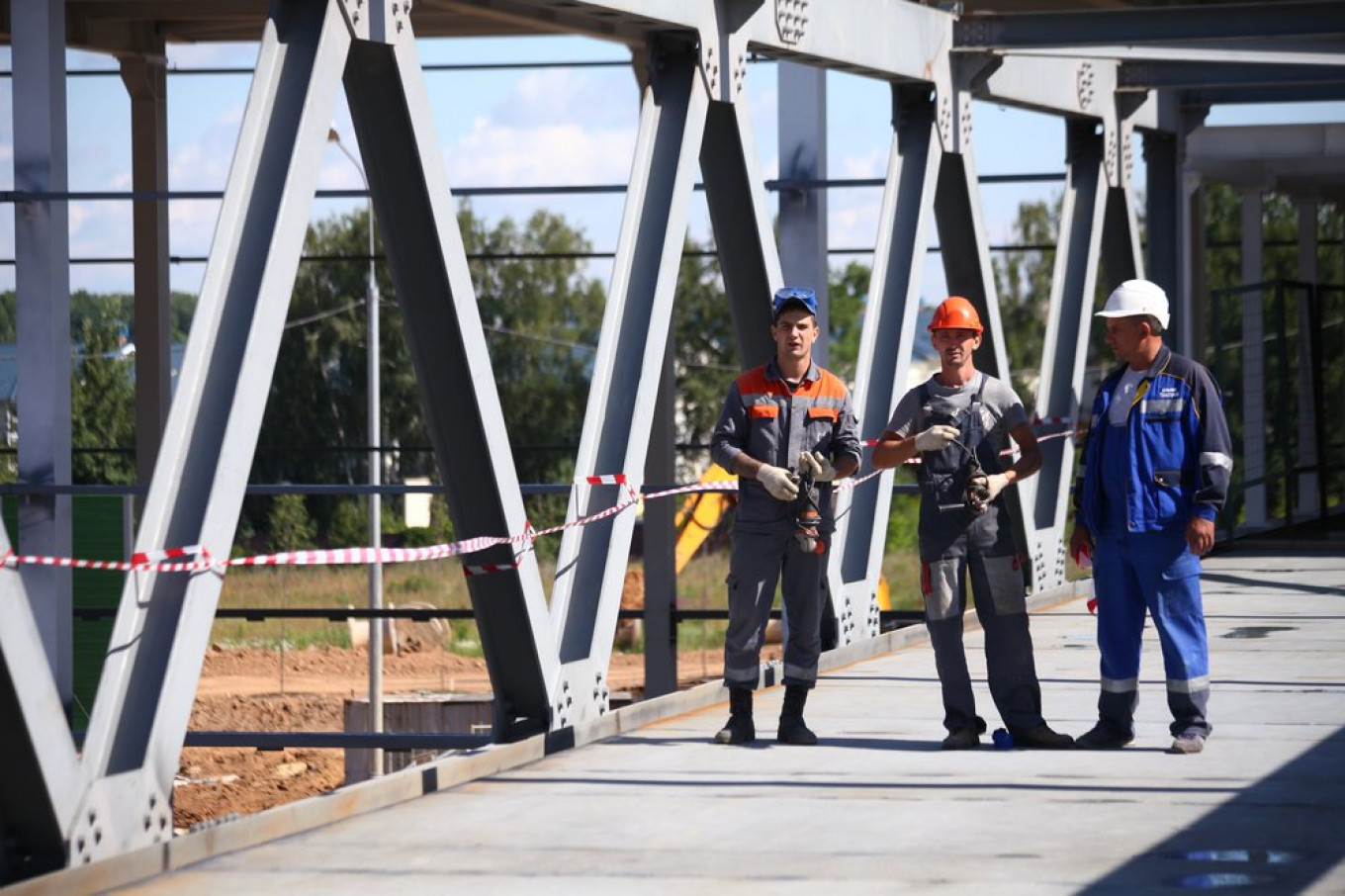
The Russian government has approved construction plans for a toll highway that will dramatically cut cargo shipping times between Europe and China, the Vedomosti business daily reported.
Russia is pursuing an ambitious infrastructure plan in President Vladimir Putin’s current presidential term, including developing its portion of the strategic China-Western Europe transport corridor. Russia has reportedly began construction of the first section of the corridor this year: a toll road linking China’s western neighbor Kazakhstan with Belarus called the Meridian highway.
Prime Minister Dmitry Medvedev approved the Meridian toll highway last month, Vedomosti reported on Sunday.
Medvedev has reportedly ordered cabinet officials to consult the project’s initiator on attracting investment for the project, including from China, and giving it the necessary support.
The initiator, the former deputy chairman of gas giant Gazprom Alexander Ryazanov, has estimated the project’s initial cost at 594 billion rubles ($9.3 billion), with a timeline of 12-14 years to break even. He said his company, called Russian Holding, already owns roughly 80 percent of the land the road would run through.
The Meridian would span 2,000 kilometers from the Russia-Kazakh border to a junction of an existing highway that connects Minsk, Belarus, with Moscow. It would shorten trucking routes between cargo hubs in western China and central Europe and may offer a faster, if more expensive, alternative to three existing rail corridors.
The highway is economically justified and can create more jobs and new transit revenue sources for Russia, Sergei Sanakoyev, the head of the Russian-Chinese Analytical Center, told The Moscow Times.
“The question is whether or not Ryazanov has enough financial and administrative resources and the right people,” he said. “I don’t see it now.”
The Meridian is among at least three competing motorways that have been proposed for Russia’s contribution to China’s Belt and Road initiative, Vedomosti cited a federal official as saying.
